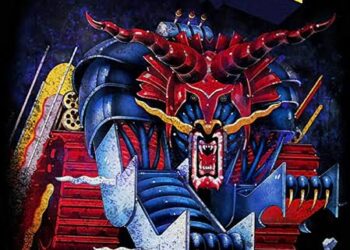For music enthusiasts who grew up immersed in the heavy riffs and iconic sounds of Black Sabbath, the recent tribute concert served as both a celebration and a nostalgic journey through decades of influence. Born in the same year Sabbath formed, I’ve watched the band evolve from their early days to becoming a cornerstone of heavy metal history. The first song I learned on guitar was “Sweet Leaf,” a testament to how their music shaped my life. Witnessing Ozzy Osbourne live in ‘82, just after the tragic plane crash that claimed the lives of several band members, was a defining moment. Over the years, I’ve attended countless Ozfest shows, experienced the 1998 Sabbath reunion, and followed the band’s journey through the highs and lows.
While fans often debate which bands were uninvited, which acts failed to meet expectations, or which groups shouldn’t have been part of certain festivals, I found myself fully immersed in the recent show. Watching the entire concert, I was struck by how the setlist and performances created a lifetime soundtrack for me—each song resonating with the same emotional intensity as a live Paul McCartney concert. It was a visceral, heartfelt experience that transcended mere entertainment.
One notable aspect of the tribute was the apparent absence of a particular moment that many fans anticipated: Lita Ford stepping out with her iconic double-neck B.C. Rich guitar to perform “Close My Eyes Forever,” her duet with Ozzy Osbourne. This track stands as her highest-charting single and represents a significant milestone in Ozzy’s solo career. Given its importance, it seemed almost inevitable that such a powerful symbol of collaboration and shared history would be featured in the tribute.
The omission of this performance left me curious rather than disappointed. It’s understandable that a tribute dedicated primarily to Sabbath might focus more on the band’s collective legacy rather than individual collaborations. However, the absence of that moment underscores how certain milestones are etched into the fabric of fans’ memories—moments that celebrate the interconnectedness of these legendary artists.
Perhaps the decision to leave out “Close My Eyes” was influenced by the desire to honor the band’s collective identity rather than individual projects. Or maybe logistical considerations, performance logistics, or the inherent complexity of organizing such a tribute played a role. Regardless, the show succeeded in capturing the spirit of Sabbath’s enduring influence, reminding us why their music continues to resonate with new generations.
In the end, the concert was more than just a series of performances; it was a heartfelt homage that reaffirmed the band’s place in rock history. For fans like myself, it was a deeply personal experience—an affirmation of the power of music to shape our lives, connect us across generations, and keep the legacy alive. While some moments might have been anticipated, the overall experience proved to be as touching and meaningful as the band’s most iconic works. It was a celebration of a lifetime’s worth of music, memories, and the enduring spirit of Sabbath.











